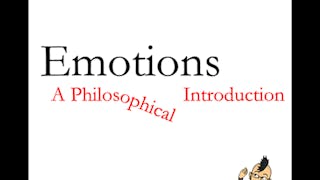This lecture series aims to explore our emotional landscape through the lens of the renowned Korean Confucian scholar, Seongho Yi Ik(星湖 李瀷, 1683- 1761) who lived through Joseon Dynasty, Korea. The Confucian project can be summarized as “Learning to be Human,” which involves not just biological development but also cultural and moral cultivation. Seongho emphasized the importance of emotional education as a crucial aspect of the Confucian cultivation program. Emotions play a significant role in understanding others and being understood, making them essential for navigating complex relationships and engaging with the world meaningfully. This series will delve into Seongho’s short yet profoundly insightful work on emotions, the New Compilation of the Four-Seven Debate (Sachil sinpyeon). His approach challenges us to think critically about our own emotional lives, how our emotions guide our moral choices, shape our relationships, and ultimately define who we become. By engaging with these lectures with curiosity and reflection, Seongho’s insights will not only enrich your understanding of Confucian moral psychology but also offer practical wisdom for leading a better life.

Läuft in 3 Tagen aus. Bringen Sie Ihre Karriere in Schwung mit Kursen von Google, IBM und mehr für £190/Jahr. Jetzt sparen.


Was Sie lernen werden
Understand the importance of emotional education in the Confucian cultivation program through the philosophy of Seongho Yi Ik.
Understand the impact of emotions on moral actions and human relationships.
Explore the complexities of human emotions through Seongho’s work, the New Compilation of the Four-Seven Debate (Sachil sinpyeon).
Apply Seongho’s philosophical approach to daily life to gain practical wisdom for leading a better life.
Kompetenzen, die Sie erwerben
- Kategorie: Cultural Sensitivity
- Kategorie: Personal Integrity
- Kategorie: Self-Awareness
- Kategorie: Critical Thinking
- Kategorie: Emotional Intelligence
- Kategorie: Ethical Standards And Conduct
- Kategorie: Decision Making
- Kategorie: Compassion
- Kategorie: Empathy
- Kategorie: Psychology
Wichtige Details

Zu Ihrem LinkedIn-Profil hinzufügen
Juli 2025
9 Aufgaben
Erfahren Sie, wie Mitarbeiter führender Unternehmen gefragte Kompetenzen erwerben.

In diesem Kurs gibt es 8 Module
This week, we’re going to learn about Seongho Yi Ik’s early life and how his childhood experiences shaped his later thinking. We’ll also look at his contributions to Neo-Confucianism and Practical Learning, as well as the historical background of the Four-Seven Debate.
Das ist alles enthalten
7 Videos2 Lektüren1 Aufgabe1 Diskussionsthema
This week, we’re going to look at Zhu Xi’s theories of moral psychology, especially how he understood human nature, emotions, and the heartmind. We’ll also be exploring how these ideas help explain moral motivation and the cultivation of ethical behavior.
Das ist alles enthalten
6 Videos1 Lektüre1 Aufgabe1 Diskussionsthema
This week, we’re going to look at how Seongho Yi Ik reinterpreted Zhu Xi's theory of emotions by grounding it in everyday life and personal practice. We’ll also explore his unique view of emotions, especially how everyday emotions can grow into moral emotions through reflection and social resonance.
Das ist alles enthalten
6 Videos1 Lektüre1 Aufgabe1 Diskussionsthema
This week, we’re going to look at Seongho Yi Ik’s perspectives on human emotions and how they relate to Confucian self-cultivation. We’ll also examine how the Four Beginnings and the Seven Emotions work together in his framework to guide moral life.
Das ist alles enthalten
6 Videos1 Lektüre1 Aufgabe1 Diskussionsthema
This week, we’re going to look at Seongho Yi Ik’s perspectives on compassion and commiseration and how they shape Confucian moral cultivation. We’ll also explore his “Dongche” model and how it connects emotions like compassion and grief to moral action and community.
Das ist alles enthalten
6 Videos1 Lektüre1 Aufgabe1 Diskussionsthema
This week, we’re going to look at Seongho Yi Ik’s perspectives on shame and disdain, and how they function in Confucian moral cultivation. We’ll also explore his “Mua” model and how these emotions help maintain moral integrity and a sense of righteousness.
Das ist alles enthalten
6 Videos1 Lektüre1 Aufgabe1 Diskussionsthema
This week, we’re going to explore Seongho Yi Ik’s views on the Fourth Beginnings, especially shi-fei (affirming/denying), and their place in Confucian emotion theory. We’ll also consider Seongho’s interpretation of affirming/denying and its role in moral psychology. Lastly, we’ll think about how wisdom works in his framework as a meta-cognitive process that completes and stores moral experiences.
Das ist alles enthalten
6 Videos1 Lektüre1 Aufgabe1 Diskussionsthema
This week, we’re going to examine Seongho Yi Ik’s perspectives on the Four Beginnings and how they contribute to Confucian moral cultivation. We’ll explore the differences between the Four Beginnings and the Seven Emotions, especially in terms of their public (gong) and private (sa) characteristics. We’ll also look at Seongho’s argument that the Four Beginnings guide and control the Seven Emotions to prevent harmful or immoral behavior.
Das ist alles enthalten
7 Videos1 Lektüre2 Aufgaben1 Diskussionsthema
Erwerben Sie ein Karrierezertifikat.
Fügen Sie dieses Zeugnis Ihrem LinkedIn-Profil, Lebenslauf oder CV hinzu. Teilen Sie sie in Social Media und in Ihrer Leistungsbeurteilung.
Dozenten



Mehr von Philosophy entdecken

Universitat Autònoma de Barcelona
 Status: Kostenloser Testzeitraum
Status: Kostenloser TestzeitraumSungkyunkwan University

University of Michigan
 Status: Kostenloser Testzeitraum
Status: Kostenloser TestzeitraumCase Western Reserve University
Warum entscheiden sich Menschen für Coursera für ihre Karriere?





Neue Karrieremöglichkeiten mit Coursera Plus
Unbegrenzter Zugang zu 10,000+ Weltklasse-Kursen, praktischen Projekten und berufsqualifizierenden Zertifikatsprogrammen - alles in Ihrem Abonnement enthalten
Bringen Sie Ihre Karriere mit einem Online-Abschluss voran.
Erwerben Sie einen Abschluss von erstklassigen Universitäten – 100 % online
Schließen Sie sich mehr als 3.400 Unternehmen in aller Welt an, die sich für Coursera for Business entschieden haben.
Schulen Sie Ihre Mitarbeiter*innen, um sich in der digitalen Wirtschaft zu behaupten.
Häufig gestellte Fragen
Access to lectures and assignments depends on your type of enrollment. If you take a course in audit mode, you will be able to see most course materials for free. To access graded assignments and to earn a Certificate, you will need to purchase the Certificate experience, during or after your audit. If you don't see the audit option:
The course may not offer an audit option. You can try a Free Trial instead, or apply for Financial Aid.
The course may offer 'Full Course, No Certificate' instead. This option lets you see all course materials, submit required assessments, and get a final grade. This also means that you will not be able to purchase a Certificate experience.
When you purchase a Certificate you get access to all course materials, including graded assignments. Upon completing the course, your electronic Certificate will be added to your Accomplishments page - from there, you can print your Certificate or add it to your LinkedIn profile. If you only want to read and view the course content, you can audit the course for free.
You will be eligible for a full refund until two weeks after your payment date, or (for courses that have just launched) until two weeks after the first session of the course begins, whichever is later. You cannot receive a refund once you’ve earned a Course Certificate, even if you complete the course within the two-week refund period. See our full refund policy.
Weitere Fragen
Finanzielle Unterstützung verfügbar,



 enthalten
enthalten
